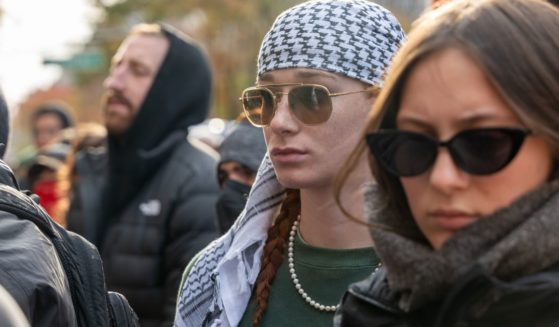Media Outlets Look To Stoke Racism Controversy as Super Bowl Nears
It must be frustrating to be a Kansas City Chiefs fan. Their team has qualified for the Super Bowl for the first time since 1970, only to be quickly met with what has become a sort of a modern rite of passage: accusations of racism from the media.
It has become a blood sport for many media outlets. What better way to welcome an organization to the spotlight than by digging up any conceivable (and inconceivable) reason to brand it racist, sexist, homophobic, etc.?
The Chiefs, being a team named and styled after Native American traditions, were too easy of a target. The only surprise is that it took until just a few days before the Super Bowl for the articles to start rolling out.
The Associated Press, whose content gets blasted to outlets around the country, published an article headlined “KC fans under closer scrutiny for chants, ‘tomahawk chops.'”
The headline, of course, raises the question: Under closer scrutiny by who, exactly?
The first source of “scrutiny” the AP cites in Vincent Schilling, an associate editor for the small website Indian Country Today, a subsection of News Maven.
Schilling labeled the Super Bowl “The Genocide Bowl” in an article he published on Indian Country Today. His main reason for making such a bombastic claim? The Chiefs were named after a white man who appreciated Native American culture and started a youth scouts group that incorporated some elements of the culture.
No killing, just a white guy who thought Native Americans were cool and used some of their traditions to help kids.
In the AP article, Schilling is quoted railing against Chiefs fans’ traditional tomahawk chop: “It’s not much more than a cartoon. My people are not a cartoon. My community is not a cartoon. My heritage is not a cartoon.”
The AP’s second big instance of scrutiny is a Facebook post by 28-year-old Democratic campaign manager Kaysa Williams.
“What good comes from a bunch of Non-Natives pretending to be Native?” Williams wrote.
Williams said the Chiefs’ fans tomahawk chop “dehumanizes who we are and what we stand for. There’s not really another race in the United States that has to defend whether or not they can be used as a mascot.”
Her assertion that other races are not used as sports mascots is, of course, very incorrect. The NFL alone has the New England Patriots and Minnesota Vikings using white men as mascots.
Photo Of The Day: Blount Poses with #Patriots Rifelman Mascots http://t.co/5dnUtZwlug pic.twitter.com/H58QBFgN3X
— The Awesome Boston (@ThAwesomeBoston) January 20, 2015
We’ve got the original #Vikings mascot, Hub Meeds, in the building for this one!#Skol pic.twitter.com/z8DX3vKWDX
— Minnesota Vikings (@Vikings) December 30, 2018
Schilling and Williams clearly have a basic misunderstanding about the purpose of sports mascots. Team names are not meant to be mocking, demeaning or dehumanizing in any way. In fact, the opposite is true. Team mascots, whether human or animal, are chosen for their fierce, courageous and respectable reputations.
The AP isn’t the only outlet to get in on the act of tearing down Chiefs fans during their biggest moment in decades. The other usual suspects also got in on the act.
The New York Times published an article titled “Celebrating the Kansas City Chiefs, the Chop Divides.”
“As Kansas City Chiefs prepare for Super Bowl, their name stirs up new controversy,” The Hill’s article declares.
While it’s undeniable that some Native Americans don’t like the use of Indian mascots and cultural elements by sports teams, the media’s attempt to portray that as the overwhelming sentiment is disingenuous. A 2016 Washington Post poll found that 90 percent of Native Americans were not bothered by the Washington Redskins’ name.
Truth and Accuracy
We are committed to truth and accuracy in all of our journalism. Read our editorial standards.











